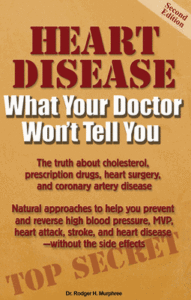Is your low fat diet contributing to your weight gain and health issues?

Fat gives us energy, produces necessary hormones, insulates our bodies from cold, and makes cellular membranes. Fat provides the fuel for muscles, including those in vital organs like the heart. Unfortunately, fats have really gotten a bad reputation in our culture. Low-fat and low-calorie diets have been all the rage for at least a couple of decades. Clever marketing specialists promise weight loss and improved health, but this ploy has contributed to things like fibromyalgia, heart disease, chronic fatigue, and type 2 diabetes.
Research out of The National Institute of Health has shown that even though our consumption of fat and cholesterol have declined over the last several years, there has actually been an average of a 10-pound weight gain per person in America.
Between 1960 and 1980, statistics show that at least ¼ of the population was overweight. However, that number has skyrocketed and grown to 60% of the population. Even with all the hype of low-fat diets and yo-yo dieting on these regimens, there has been a massive increase in obesity. Currently, it is estimated that over 80% of Americans will be overweight in the near future. This “fat-free” weight loss mantra is the most dangerous and misguided blunder since leeching.
Not surprisingly, instilling fear of fat and cholesterol created a multi-billion-dollar diet industry for low-fat foods that continues to grow exponentially.
Instead of simply monitoring our intake and eating healthy foods with a normal amount of fat and cholesterol, we trust the medical interventions and diet companies. Medical pharmaceuticals, another multibillion dollar industry, instead of debunking the low-fat diet myth, adds statins (cholesterol) drugs to the mix to bring down fat and cholesterol levels in the blood, which can lead to heart disease. Studies have shown, however, that these drugs have a 1% success rate and carry with them an increased risk of developing certain types of cancers, along with other unsavory side effects.
These dieters are avoiding fat but consuming hidden sugars in processed foods that are being turned into fat.
Fat is a part of all natural and healthy foods. It is an essential piece of the puzzle that is our body and plays an important role in our health. We absolutely cannot live without fat, which provides twice the amount of energy of carbs and 70% of energy needed to keep the body warm. Furthermore, fats make up about 70% of the brain and insulate the cells to allow neurotransmitters to communicate.
Fats and cholesterol make up every cell in our body. The cholesterol keeps cell membranes permeable, which then allows the good nutrients in and toxins out. More than 8% of the brain’s solid matter is cholesterol, which is essential for cognitive and brain functioning. It normalizes the neurotransmitters like serotonin and dopamine.
Dropping cholesterol and fat levels below normal range can result in mood disorders like anxiety, depression, fibro fog, and irritability. Since cholesterol helps produce hormones like DHEA, estradiol, testosterone, cortisol, and progesterone, a deficiency can lead to more than just mood disorders, but also affect libido, stress-coping abilities, and even digestion.
Fats and cholesterol are essential for survival, which means they are made naturally by the body every day. If you remove cholesterol and fats from the diet at significant levels, the body will produce more to compensate.
While extremely high levels of cholesterol can lead to heart disease and other health concerns, normal levels are necessary. Consider these below facts about cholesterol (many mentioned above), taken from my book, Heart Disease: What Your Doctor Won’t Tell You:
 The body makes 800-1500 mg of cholesterol daily. This is approximately twice as much as you take in through diet. Fats and cholesterol are the building blocks that make up every cell. Cholesterol helps to keep cell membranes permeable, which allows good nutrients to get in and toxic waste products to get out. Additionally, cholesterol makes the bile salts needed for fat digestion.
The body makes 800-1500 mg of cholesterol daily. This is approximately twice as much as you take in through diet. Fats and cholesterol are the building blocks that make up every cell. Cholesterol helps to keep cell membranes permeable, which allows good nutrients to get in and toxic waste products to get out. Additionally, cholesterol makes the bile salts needed for fat digestion.
Cholesterol is a precursor to vitamin D, which is an important vitamin that helps to reduce pain associated with fibromyalgia. Cholesterol is also needed for production of hormones like testosterone, DHEA, estradiol, progesterone, and cortisol. All of these are essential for optimal health and in reducing fibromyalgia symptoms.
About 70% of the brain is made up of fats, and more than 8% of the brain’s solid matter is made up of cholesterol. They insulate brain cells and allow the neurotransmitters to function properly.
Low cholesterol levels are repeatedly linked to decreased brain function and mood disorders. Low cholesterol puts you at three times the risk of suffering from depression as those with normal levels. The British Medical Journal published research showing that low cholesterol exacerbates depression.
Furthermore, lower than normal cholesterol levels are linked to an increased risk of suicide. One study published in the British Medical Journal showed that there was low cholesterol levels in all 300 people studied who had committed suicide. A different study revealed that men with lowered cholesterol caused by prescription medications had two times the risk of suicide. Cholesterol below 180 is linked to increased risk for heart attack, too. This is important to remember when a doctor wants to shove cholesterol-lowering medications down your throat.
Learn more about how to prevent Heart Disease without dangerous drugs in my book, Heart Disease: What Your Doctor Won’t Tell You
These patients and hundreds of others who’ve worked personally with me have in fact beaten their fibromyalgia. You can read or listen to their stories by clicking the link below:
|
|








Leave a Reply
Want to join the discussion?Feel free to contribute!